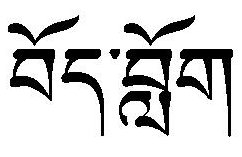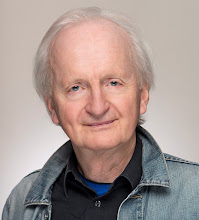Dan Martin has come across our provisional
online catalogue of Tibetan manuscripts,
as noted in his excellent
Tibeto-logic blog.
The descriptive catalogue was first developed by
J.E.Stapleton Driver in the early 1970s,
and then revised by David Barrett,
onetime Consultant in Caucasian and Central Asian Studies,
who died in 1998, an obituary is here. I never knew him,
but posthumous thanks are due.
Many students of Tibetan culture also owe thanks to
John Stapleton Driver, for his translations into English of
G.Tucci's Tibet, paese delle nevi,
and then R.A.Stein's La Civilisation tibétaine.
I spoke to John a couple of months ago.
The typescript catalogue is online here as a preliminary move
in a project to create a digital catalogue for all the
Tibetan manuscripts in the Special Collections at Bodleian,
see here for an introduction to the Bodleian's
Tibetan Collection (scroll down a bit for Tibetan).
The catalogue should be searchable. Please note that the
transliteration system used is not standard
Library of Congress or Wylie - you have to be a bit clever with
your searches.
Thanks due to Christine Madsen for technical help with fixing up the file.
We intend to develop a digital catalogue along the lines of
Bodleian's Fihrist catalogue for manuscripts in Arabic script,
but for manuscripts in Tibetan script.
This project is kindly being funded by the Aris Trust -
thanks to Anthony Aris and Dr Ulrike Roesler for arranging the funding.
The catalogue will have Tibetan script for titles as well as
LoC and Wylie transliteration, so hopefully the collection will be
easily accessible for research by indigenous Tibetan users.
Watch this space...
******************************
R.I.P.
John Stapleton-Driver sadly passed away on 28 May 2014.
An appreciation of him @ this LINK ,
reproduced below
John E. Stapleton Driver was one of the first Europeans to meet and receive
teachings from the great Tibetan lamas when they fled homeland in the
1950’s. He was an integral part of this unique period of history.
John was born in 1931 in England. He taught himself Tibetan from a
textbook when he was young. In later years his natural linguistic
ability gave him a wide knowledge of both occidental and oriental languages.
He earned a degree in Classical Chinese at Oxford University
(Merton and St. Anthony's Colleges). During those studies he
became interested in Tibetan and Sanskrit and related Buddhist
teachings.
In the mid-1950’s, he traveled to India to do research and field work
for his Ph.D. on the Guhyagarbha Tantra. He lived in Kalimpong,
a small town to which many of the most important Tibetan Buddhist
teachers of the last century had fled.
He was a student of Jamyang Khyentse Cho Kyi Lodro and took
numerous teachings from him in Sikkim and India. The Fourth Dodrup
Chen Rinpoche lived in John’s house for some time and gave the
Nyingtik Yab Shi empowerments there to him and John Blofield.
John was deeply devoted to Dilgo Khyentse Rinpoche and
often met him informally to receive teachings.
In India, John also taught English classes to Trungpa Rinpoche, Tulku
Thondrup, Chime Wangmo (Dilgo Khyentse Rinpoche’s daughter),
and others. He was instrumental, with Freda Bedi, in getting a scholarship to
Oxford for Trungpa Rinpoche and continued to help him with his studies
in England.
John translated two great classics into English:
Tibet: Land of the Snows by Giuseppe Tucci and R.A. Stein’s Tibetan
Civilization. He wrote a descriptive catalogue of the Tibetan manuscripts
in the important Bodleian Collection that still provides invaluable
material for researchers.
He worked for The London Stock Exchange as part of the team
setting up Talisman, the first computerized share-dealing system.
In 1979 he founded a consultancy, Flowergold Ltd, and one of his
contracts was with The British Library, defining international
cataloguing conventions and also facilitating technical
compatibility with the Library of Congress.
His warm and personal relationship with Khyentse Rinpoche
continued over the years and in 1990, he traveled to Tibet with him
and a number of students on pilgrimage.
John passed away on May 28th in England after a long illness
that he faced with fortitude and courage. R.I.P.



